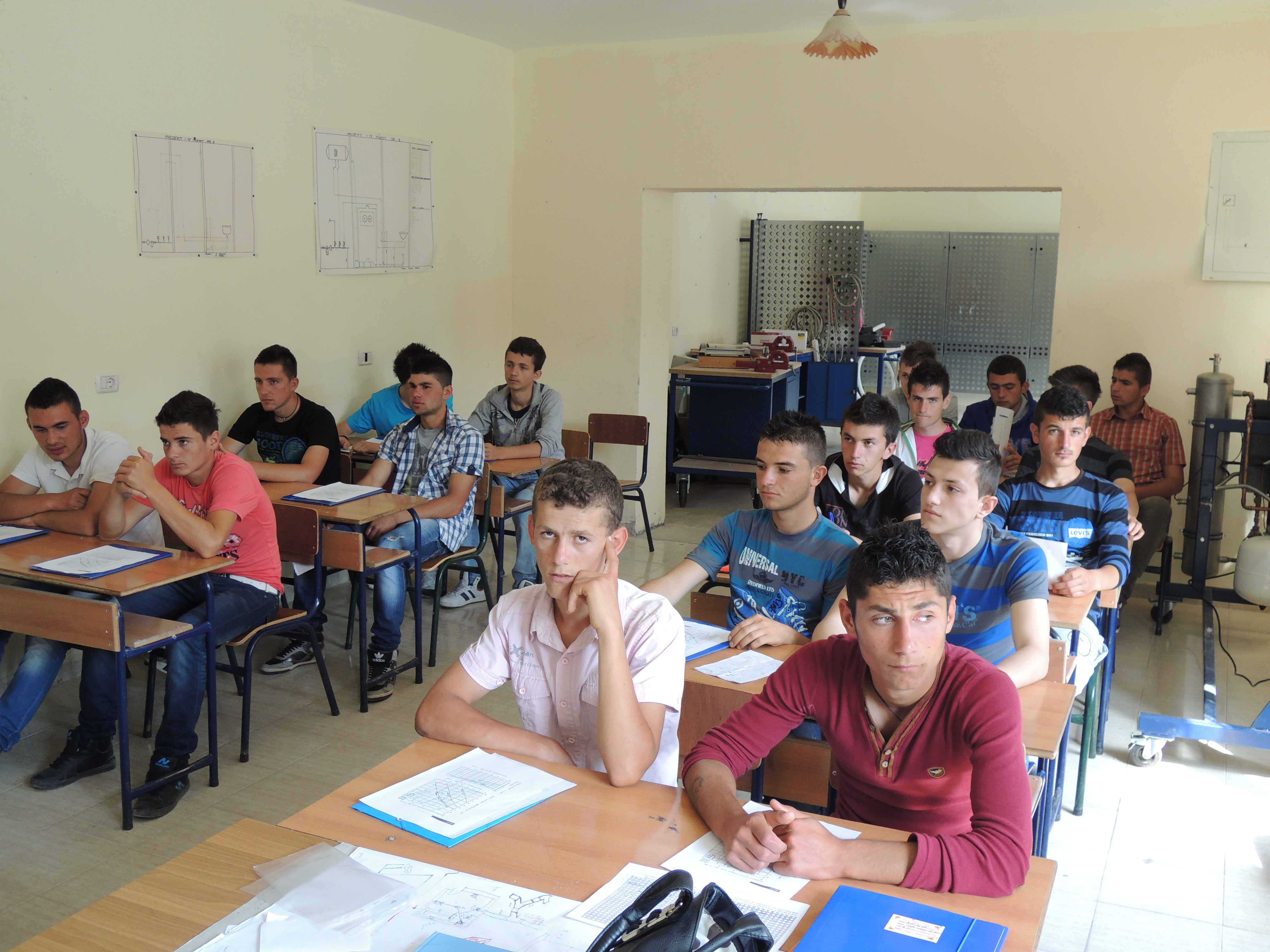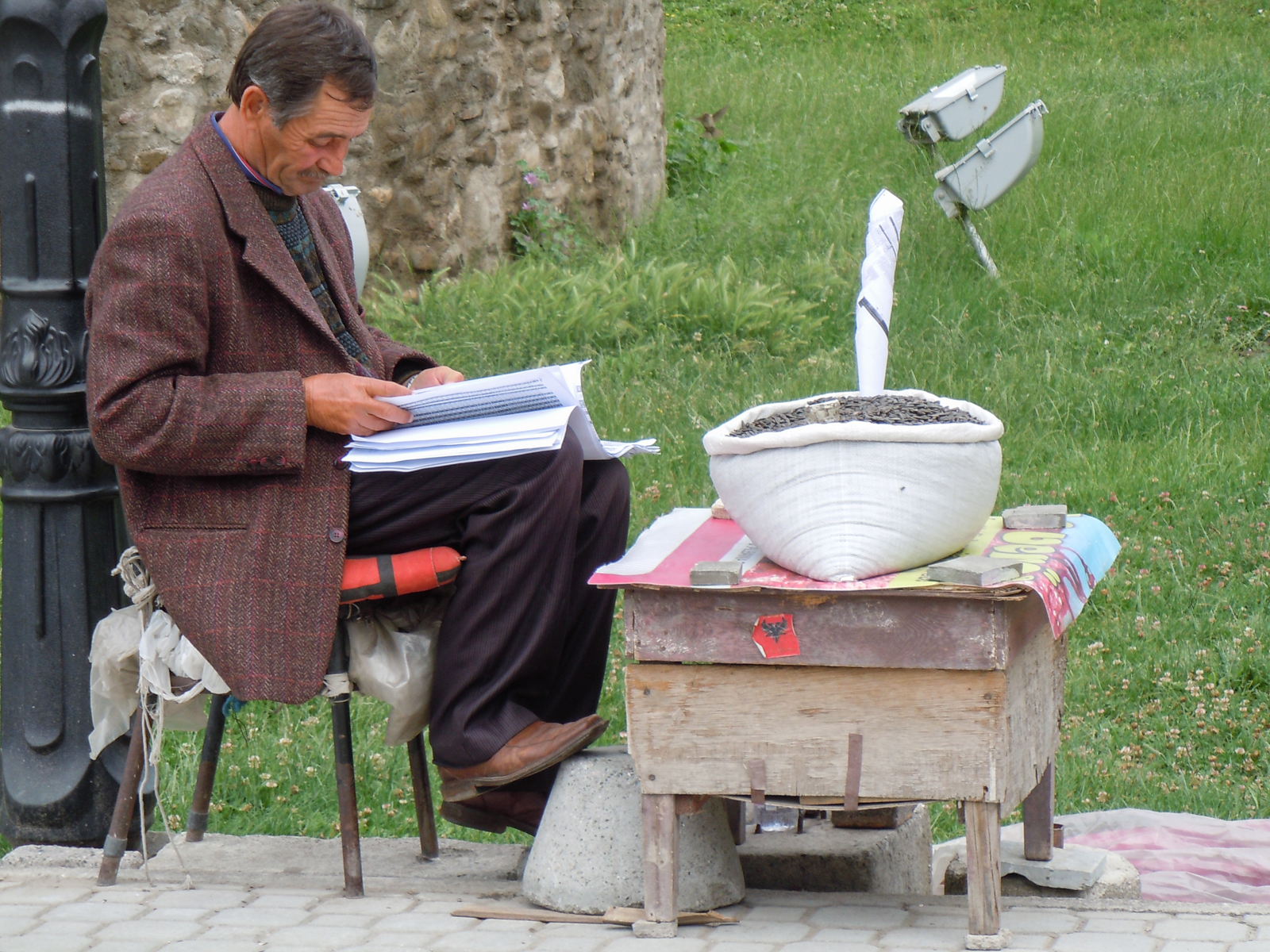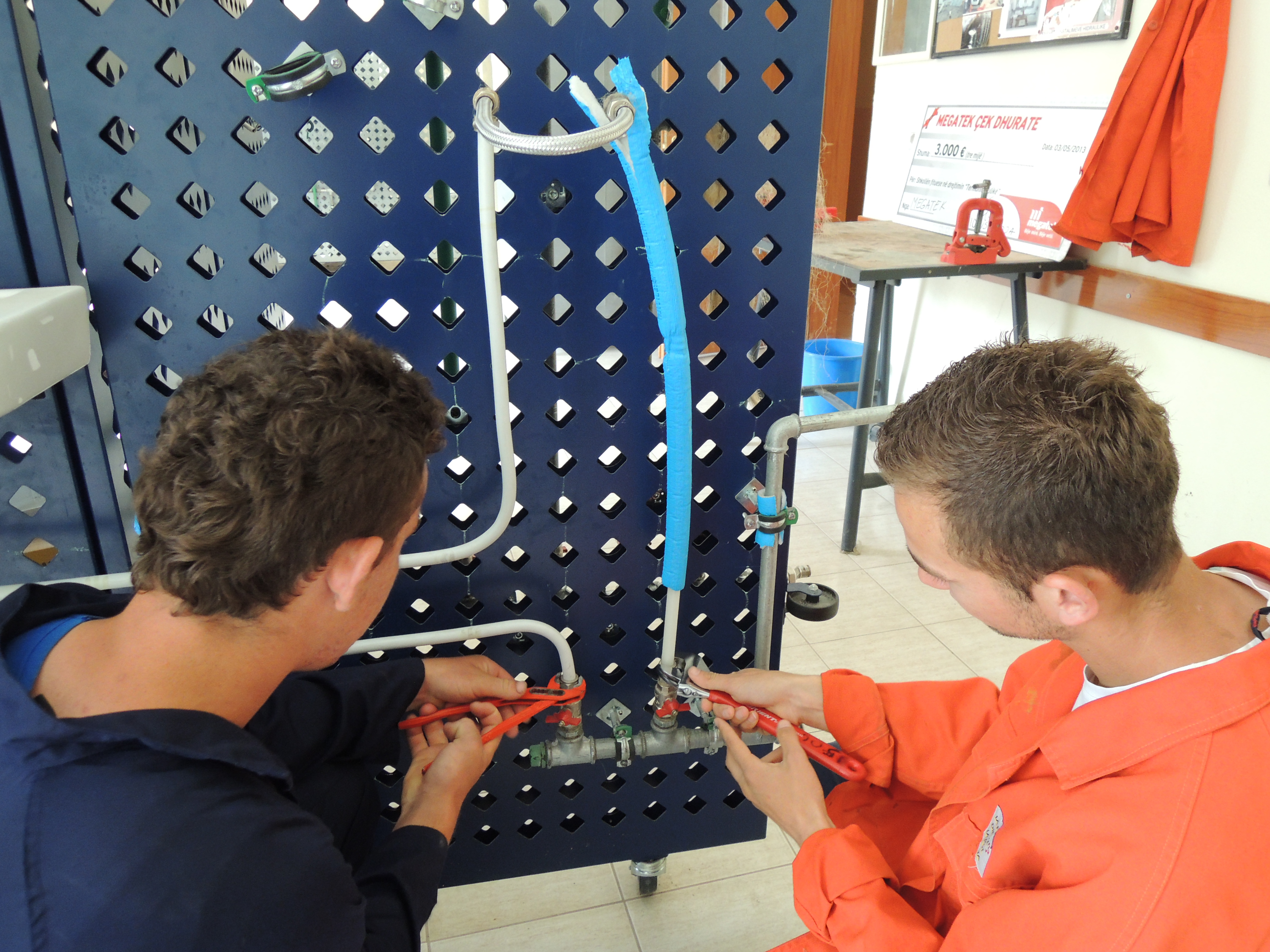Albania’s youth get a leg up, with Swiss support

A young population, high unemployment and an acute shortage of qualified workers is usually a recipe for economic trouble. In Albania’s case, the Swiss have stepped in to help provide vocational job training and give young people a future.
Lushnja, home to around 50,000 people, is located about 100 kilometres southwest of the Albanian capital, Tirana, in an important agricultural area. The vocational school is on the outskirts of town: a three-storey building where about 700 apprentices train as car mechanics, electricians, plumbers and heating engineers.
The Swisscontact development organisation is heavily involved in vocational training in Albania with the AlbVet project (Vocational Education and Training Support). Mandated by the Swiss Agency for Development and Cooperation (SDC) to train teachers, it has been supporting the Albanian government in its reforms of the vocational education system since 2007 – a large task given that Albania’s job training system had to be completely re-built at the end of the communist era. The AlbVet programme is market-orientated, training young people in skills the country actually needs.
The 17 future plumbers and heating engineers in their second year at the Lushnja school hope their skills will be needed by their country. The young men sit quietly, two to a desk, while teacher Luciana Muca hands them each a sheet of A4 paper with tables and curves: calculations measuring how pumps circulate. The blackboard on the wall is full of complicated formulae, part of the subject matter and teaching material put together with the help of Swisscontact.

More
A land between poverty and progress
Hands-on study
At the back of the room, the 15 fourth-year students are busy filling solar panels with anti-freeze. Each of them has to demonstrate to instructor Niko Nikolla that he has understood the principle. Not everyone gets it on the first try – there’s a lot of laughing and joking.
The young men come from the area around Lushnja and from Korça and Fier. The vocational school in Lushnja is one of four centres of competence in Albania and is responsible for solar technology, an industry that has a lot of potential in this sunny Mediterranean country. During the two-month-long modules, the apprentices who come from out of town sleep in the school’s own hostel.
Mock-ups of various types of installations hang on the walls of the workshop where, for example, the principle of central heating or of a sanitary installation is demonstrated for the students to practise on.
To equip the apprentices for the job market, teachers place less emphasis on theory and lectures; lessons have more to do with on hands-on learning. The Swiss vocational training system is the model here, linking practice and learning. Apprentices in Switzerland get their training in a company, attending vocational school part-time. Some do their apprenticeships in a training workshop, where practice is taught alongside theory.
But in Albania, it is hard for students to find training places outside the school.
“We still need to find a good way to work systematically with private industry,” Silvana Mjeda, responsible for vocational training at the SDC cooperation office in Tirana, tells swissinfo.ch. “The private sector is still young and weak, and there are not many large companies.”
Switzerland has programmes in 17 of Albania’s 41 vocational schools, and together with Germany, Austria and the European Union, it is one of the major players in Albanian vocational training.
In the Swiss AlbVet programme, training is provided for IT specialists, heating engineers, plumbers, bakers and hairdressers.
Switzerland allocated CHF3.1 million ($33.7) to AlbVet for the period from 2007-2014.
Switzerland has also launched the Territorial Employment Pact – TEP – in conjunction with the UN Development Program, the International Labour Organisation and local bodies. It is investing CHF1.6 million in the two year programme, which runs to the end of 2013 and is meant to generate jobs in the private sector in northern Albania (Shkodra, Kukës, Lezhë), where youth unemployment is particularly high .
The SDC has been working in Albania since 1997. Under Switzerland’s 2010-2013 country strategy, the SDC and the State Secretariat for Economic Affairs (SECO) have an annual budget of CHF13 million there.
Need for adaptation
For Matthias Jäger, the Swisscontact project manager in Albania who has been involved in job training in the country since 2007, the Swiss sandwich system is an excellent model – but it can’t just be exported wholesale.
“For it to work, you need good cooperation between the state institutions and private industry. But we are still a long way from that in Albania, where 85 per cent of companies are small and micro-businesses and there is little trust in the state,” he tells swissinfo.ch.
Even so, the vocational training bill, passed in 2012 with input from Swisscontact, contains elements of the Swiss system, such as hands-on experience and cooperation with private industry.
Jäger is pleased that this, at least, has been achieved – in large part thanks to good contacts in Albania’s education ministry, which is critical.
“There’s a huge amount of centralisation: everything goes via the ministry,” he says. “Schools have very limited autonomy, not only financially, but also with regard to jobs and student numbers.”
He sees this dependency as one of the major problems facing the vocational programme.
“Which training paths are offered in which schools is mainly a political decision and doesn’t necessarily have much to do with the market.”

Looking forward hopefully
It’s now midday at the Lushnja school and time for the apprentices to take their lunch break. But first, the fourth-year plumbers proudly show their foreign visitors the cup they won for the second time in the national “Skills Olympics” competition at the beginning of May.
Their pride is shared by school director Elton Halla and instructor Niko Nikolla, as well as by Jäger. The award is tangible proof of their hard work and the standard they have achieved and provides encouragement to the young men due to complete their apprenticeships in the summer.
Eighteen-year-old Sulejman, for one, is optimistic about the future, even if youth unemployment in Albania stands at between 30 and 50 per cent, depending on how it’s counted.
“I’ve got good marks. I’d like to work, and later, when I’ve saved enough money, open my own business. And perhaps I’ll go on studying and become an engineer.”
Fation from the town of Fier, also 18, dreams of working in the United States or Italy, and his fellow-student, 19-year-old Ervis, would like to go to Italy too.
Ridvan, 19, can already afford to be a bit relaxed about the future, as he’s already been offered a job once his training is over with Lushnja’s city water works.
Parliamentary elections are due on June 23.
They will be the 7th elections since the fall of the communist regime in 1990/91.
The government has been led by Sali Berisha of the Democratic Party since 2005.
His main challenger is Edi Rama of the Socialist Party, the former mayor of Tirana.
The enduring euro crisis in Albania’s key markets of Greece and Italy has hindered the country’s economic growth in the past few years.
In 2012, the unemployment rate remained stuck at 14%, according to the national statistics office, INSTAT.
However, the flourishing shadow economy, which accounts for up to 60% of GDP according to the International Monetary Fund, means this figure is not very meaningful.
Depending on the sou
rce used, youth unemployment stands at between 30% and 50%.
In 2012, Albania’s GDP amounted to about 3,000 euro per head.
The legally established minimum wage is about 150 euro per month.
(Translated from German by Julia Slater)

In compliance with the JTI standards
More: SWI swissinfo.ch certified by the Journalism Trust Initiative
You can find an overview of ongoing debates with our journalists here. Please join us!
If you want to start a conversation about a topic raised in this article or want to report factual errors, email us at english@swissinfo.ch.